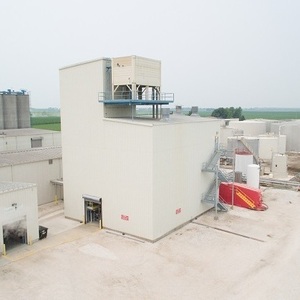Biodiesel production grows in Iowa as capacity surges 20 percent

Photo: Renewable Energy Group Inc.
February 27, 2017
BY The Iowa Biodiesel Board
Biodiesel production is expanding in Iowa, and proactive state policies have played a pivotal role in keeping the state’s title as the national leading producer.
In advance of its annual Biodiesel Day on the Hill, the Iowa Biodiesel Board announced today the state’s capacity to produce biodiesel is on the rise by nearly 20 percent, from 334 MMgy to almost 400 MMgy. Expansion projects currently underway or recently completed led to the boost.
“It’s no accident that Iowa’s biodiesel manufacturing sector is thriving above all other states,” said Grant Kimberley, Iowa Biodiesel Board executive director. “Our proactive state biodiesel policies have effectively increased production and consumption in Iowa, benefiting our economy.”
Those policies include the Iowa Renewable Fuels Infrastructure Program, which provides grants to help fuel distributors and retailers modernize equipment to include biofuels.
On March 1, members and supporters of IBB will meet with state legislators at the Biodiesel Day on the Hill to ask for funding for the program for another year.
Advertisement
“It is important that we continue to create opportunities for customers to access these clean-burning homegrown fuels,” said Bill Northey, Iowa Secretary of Agriculture. “Iowa is fortunate to have many retailers making significant investments to provide their customers with renewable fuels, and the Iowa Renewable Fuels Infrastructure Program is available to support their efforts.”
The program has resulted in 261 new biodiesel retail pumps and 55 terminal locations throughout the state since 2006, giving all Iowans greater access to the American fuel.
Biodiesel plants that have recently expanded capacity or are in the process include:
-AGP in Sergeant Bluff, from 30 to 60 MMgy
-REG in Ralston, from 12 to 30 MMgy
Advertisement
-Western Iowa Energy in Wall Lake, from 30 to 45 MMgy
W2Fuel in Crawfordsville has also begun producing again after a hiatus.
In 2016, Iowa’s biodiesel plants produced about 305 million gallons of biodiesel according to the National Biodiesel Board—a record. According to a study by ABF Economics, biodiesel activity generated about 3,800 full-time equivalent jobs.
Kimberley noted federal programs like the renewable fuel standard (RFS) have driven biodiesel’s success nationwide, but the states with the strongest policies help determine who plays the biggest role in production, and capture the resulting economic benefits.
Biodiesel is an advanced biofuel made from agricultural byproducts and coproducts, such as soybean oil. The Iowa Biodiesel Board is a state trade association representing the biodiesel industry.
Iowa Biodiesel Day on the Hill will take place March 1 at the Iowa State Capitol building in room 116 from 11:30 a.m. to 1:00 p.m.
Related Stories
The U.S. EPA on March 24 asked the U.S. District Court for the District of Columbia to dismiss a lawsuit filed by biofuel groups last year regarding the agency’s failure to meet the statutory deadline to promulgate 2026 RFS RVOs.
The USDA on March 25 announced it will release previously obligated funding under the Rural Energy for America Program To receive the funds, applicants will be required to remove “harmful DEIA and “far-left climate features” from project proposals.
2025 International Biomass Conference & Expo concludes as largest event in a decade and unparalleled industry insights
The 2025 International Biomass Conference & Expo, held March 18-20 in Atlanta Georgia, featured of insightful discussions, cutting-edge technology showcases, and unparalleled networking opportunities.
Nearly 1.52 billion RINs were generated under the RFS in February, down more than 25% when compared to the 2.04 billion that were generated during the same month of last year, according to data released by the U.S. EPA on March 20.
The U.S. EPA on March 20 published updated SRE data showing that four new SRE petitions have been filed under the RFS in the past month. According to the agency, 156 SRE petitions are currently pending.
Upcoming Events










